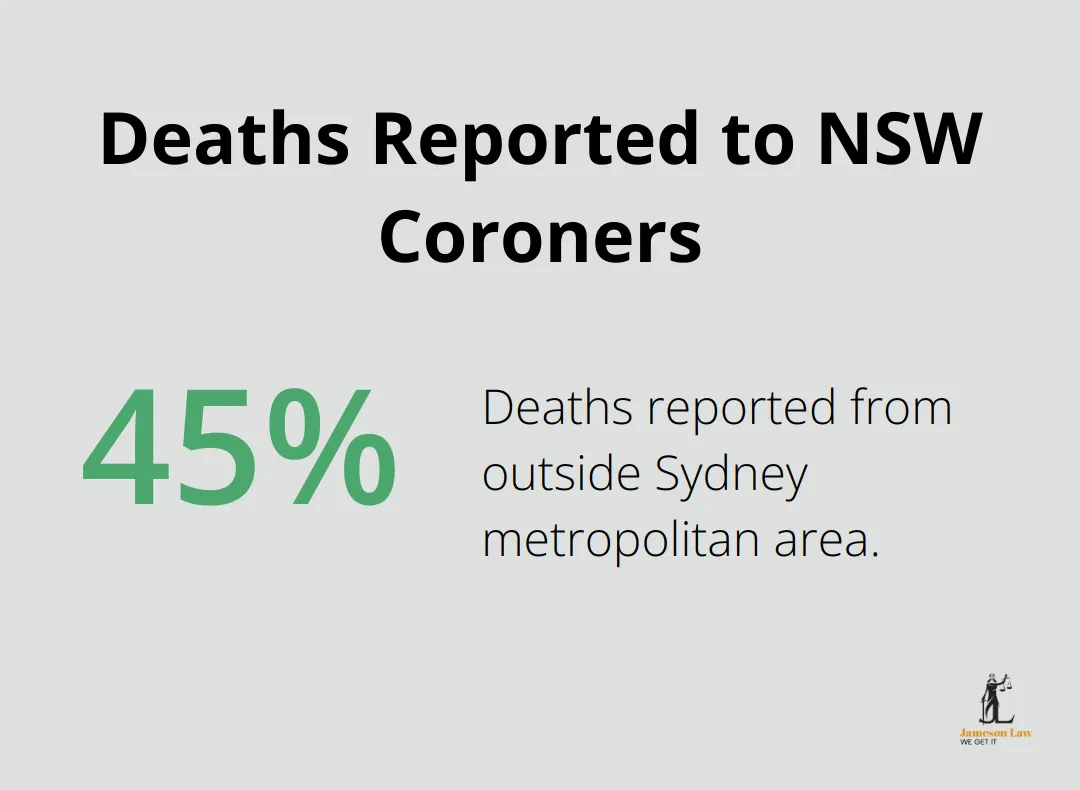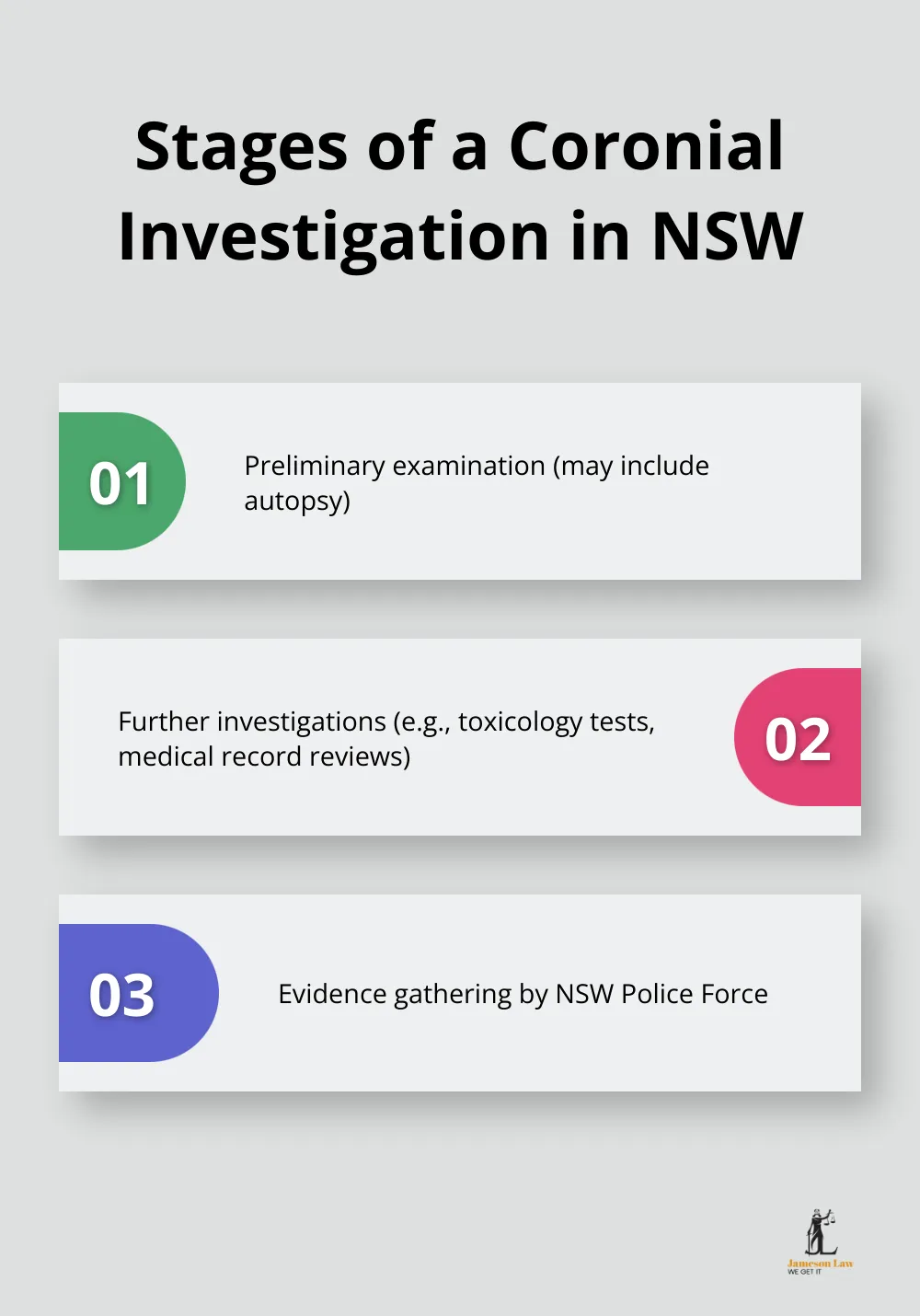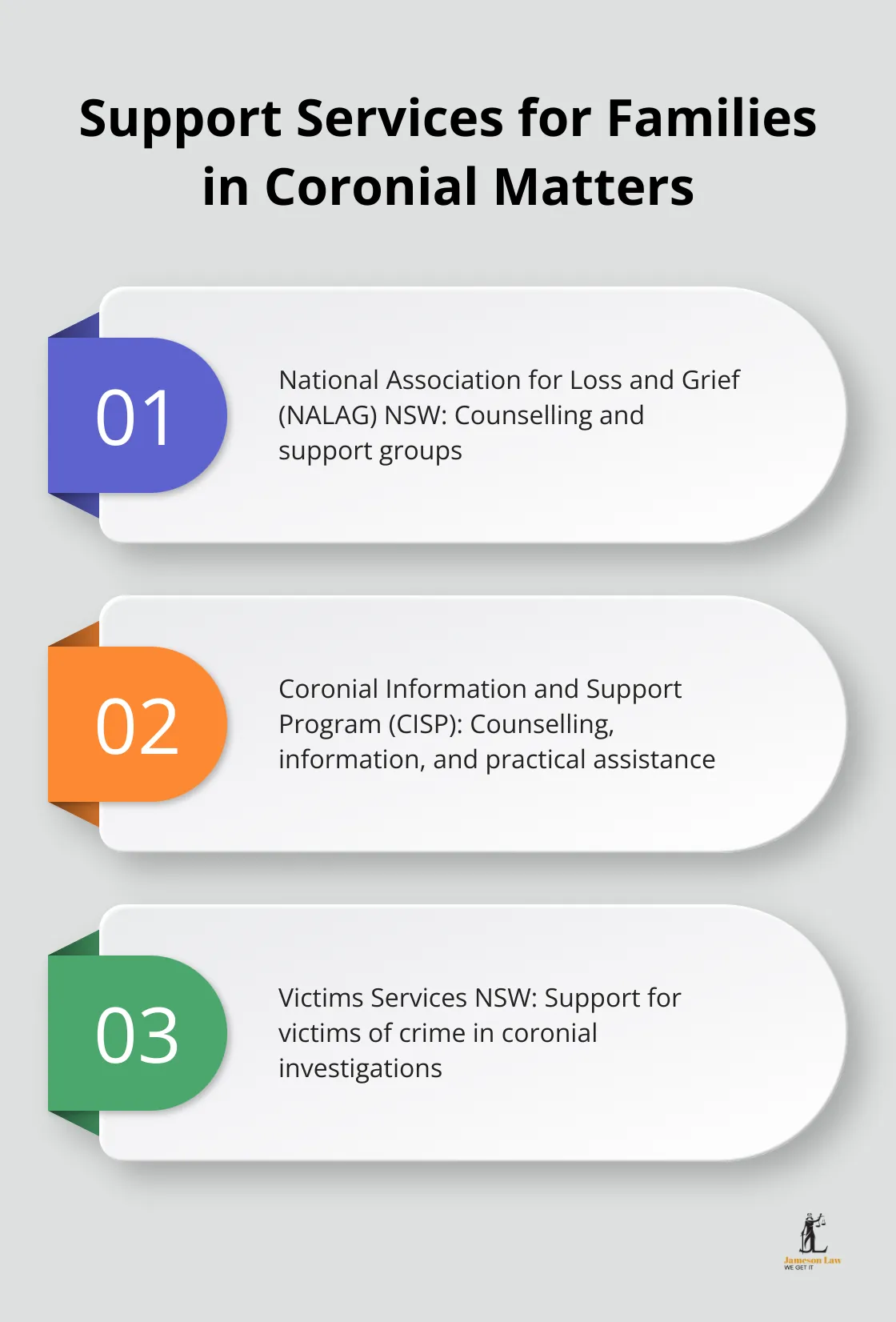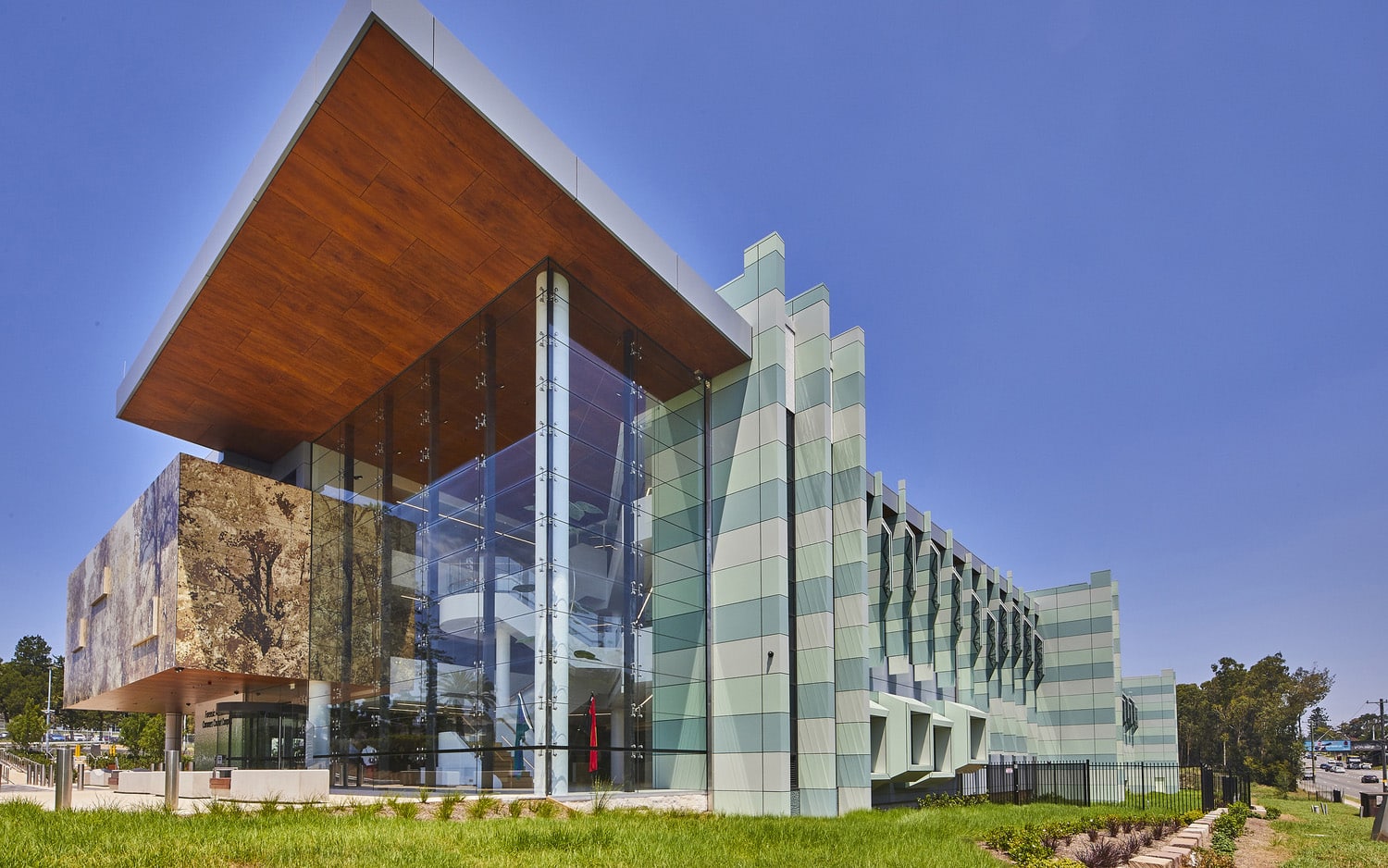The Coroners Court of New South Wales plays a vital role in our justice system, investigating unexpected deaths and providing closure to families. At Jameson Law, we understand the complexities and emotional challenges surrounding coronial matters.
This guide aims to demystify the court’s processes, explain your rights, and highlight available support services. Whether you’re directly involved or simply seeking information, we’ll walk you through everything you need to know about the Coroners Court of NSW.
What Does the Coroners Court Do?
Investigating Reportable Deaths
The Coroners Court of New South Wales investigates unexpected, unnatural, or violent deaths. Its primary purpose is to determine the circumstances surrounding these deaths and identify ways to prevent similar incidents in the future.
The court handles a wide range of cases, including deaths that occur in custody, during police operations, or in care facilities. The State Coroner is responsible for ensuring that the court’s investigations and inquests are conducted fairly and efficiently.
One of the most important functions of the Coroners Court is investigating potentially preventable deaths. Other potential areas of reform include the concept of mandatory responses to coroners’ recommendations and the establishment of a Coroner’s Court of New Zealand.
Powers of the Coroner
Coroners in NSW possess extensive powers to gather evidence and conduct inquiries. They can order autopsies, seize documents, and compel witnesses to give evidence. These powers are essential for uncovering the truth in complex cases.
In high-profile investigations (such as the ongoing inquest into William Tyrrell’s disappearance), the coroner’s ability to explore various theories and gather extensive evidence is paramount. This case has highlighted the coroner’s role in investigating missing persons cases, even when a body has not been found.
Making Recommendations for Change
The Coroners Court’s work can lead to significant changes in legislation, industry practices, and public health policies. The court’s ability to make recommendations to prevent future deaths is one of its most impactful aspects.
A recent coronial inquest into the death of NRL player Keith Titmuss revealed inadequacies in training protocols. Titmuss died in November 2020 after collapsing during a pre-season session with the Manly Sea Eagles. The 20-year-old was rushed to the hospital. This finding has the potential to improve safety measures across the sports industry, potentially saving lives in the future.
Balancing Public Interest and Privacy
The Coroners Court must strike a delicate balance between public interest and the privacy of the deceased’s family. While inquests are generally open to the public, the court can restrict access or suppress certain information to protect the privacy of those involved.
This balance is particularly important in high-profile cases (like the William Tyrrell investigation) where media attention can be intense. The court’s ability to manage these competing interests is crucial for maintaining public confidence in the coronial process.
As we move forward to explore the coronial process in NSW, it’s important to understand how these various aspects of the Coroners Court’s role come together in practice. The next section will detail the steps involved in a coronial investigation, from the initial report of a death to the conclusion of an inquest.
How the Coronial Process Works in NSW
The coronial process in New South Wales involves a series of steps designed to investigate reportable deaths and provide answers to families. This complex procedure can take weeks, months, or even years, depending on the case’s complexity.
Reporting Deaths to the Coroner
In NSW, certain deaths must be reported to the Coroner. These include:
- Unexpected or unnatural deaths
- Deaths in custody or care
- Deaths where the person’s identity is unknown
Healthcare professionals, police officers, and members of the public all play a role in reporting these deaths. The Coroners Court of New South Wales receives death reports annually, with about 45% of deaths reported to coroners in NSW being reported outside the Sydney metropolitan area.

Prompt reporting is essential, as delays can complicate investigations and extend the process for families. (This is particularly important in cases involving potential foul play or public health concerns.)
Stages of a Coronial Investigation
Once a death is reported, the Coroner’s office initiates its investigation. The process typically includes:

The data from the State Coroner’s annual reports to Parliament show a relatively steady rate of reported deaths. Families can object to this procedure, but the Coroner makes the final decision.
Throughout the investigation, families can request updates from the Coroner’s office. (Many legal experts recommend appointing a single family member as the point of contact to streamline communication.)
Inquests and Public Hearings
If the Coroner determines an inquest is necessary, a public hearing will occur. Inquests are formal court proceedings where witnesses give evidence under oath. Their purpose is to establish facts and potentially make recommendations to prevent similar deaths, not to assign blame.
In 2021, 16 Aboriginal people died while in police custody in NSW, doubling the previous record of eight in 1997. These cases often result in inquests due to their nature.
Families have the right to legal representation during inquests. While not mandatory, having a lawyer can help navigate the legal complexities and ensure proper representation of interests. Firms specialising in coronial matters can provide expert guidance in this area.
It’s important to note that not all coronial investigations result in an inquest. In many cases, the Coroner can make findings based on available evidence without holding a public hearing. This approach often provides quicker resolution for families while still fulfilling the Coroner’s investigative duties.
The coronial process, while thorough, can be emotionally challenging for families. The next section will explore the rights and support available to those navigating this difficult journey.
Navigating Family Rights During Coronial Investigations
Accessing Information During Investigations
Families have the right to stay informed throughout the coronial process. The Coroners Court of New South Wales investigates unexpected, suspicious, and unexplained deaths. This court provides a Family Liaison Officer as a point of contact between families and the court. This officer updates families on the investigation’s progress and explains court procedures.
To stay informed, families should:
- Designate a primary contact person for communication with the court
- Request regular updates from the Family Liaison Officer
- Keep a record of all communications and information received
The Coroner’s office balances transparency with the integrity of the investigative process. Some details may be withheld if they could compromise the investigation.
Legal Representation in Coronial Matters
Legal representation can prove invaluable during coronial proceedings. A lawyer experienced in coronial law can help families navigate the complex legal landscape, ensure proper representation of their interests, and provide emotional support.
Legal aid is available for some coronial matters in NSW. If you have a sufficient interest in the subject matter of the coronial inquiry, you may be entitled to legal representation at the hearing.
For those who don’t qualify for legal aid, private legal representation is an option. Many law firms offer expertise in coronial matters. When choosing a lawyer, look for experience in coronial law and a track record of supporting families through the process.
Support Services for Families
Emotional support plays a key role during coronial investigations. Several organisations in NSW offer specialised support services for families involved in coronial matters:

These services offer emotional support, practical assistance, and guidance throughout the coronial process. Many families find that connecting with others who have gone through similar experiences can be particularly helpful. The Bereavement Care Centre offers counselling and support services for the terminally ill and their families and those recently bereaved.
Final Thoughts
The Coroners Court of New South Wales plays a vital role in our justice system by investigating unexpected deaths and driving positive change. This court provides closure to families, ensures accountability, and improves public safety through its recommendations. The coronial process, though often lengthy, contributes significantly to the well-being of our community.
Understanding your rights and available support systems is essential when involved in coronial matters. Legal representation can help navigate the complexities of proceedings, while emotional support from specialized organizations proves invaluable during challenging times. The National Association for Loss and Grief NSW, the Coronial Information and Support Program, and Victims Services NSW offer valuable assistance throughout the process.
At Jameson Law, we provide expert legal services for matters related to the Coroners Court of New South Wales. Our experienced team strives to achieve the best possible outcomes for our clients (while offering tailored legal support). If you need professional help with a coronial matter, don’t hesitate to reach out to us for guidance and representation.













